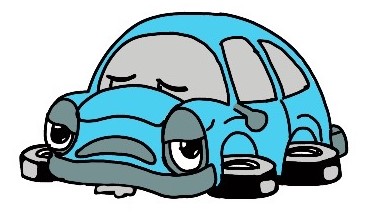
By Dora Gilreath
Entertainment Editor
Two words in the English language that send many Americans into a frenzy are “gas” and “prices,” especially lately. According to Triple A (AAA), the average price for a gallon of gas in the nation was $4.25 as of March. While there’s not much we Americans can do to decrease these prices, there is a way that we can become less dependent on cars.
Giving up cars completely is out of the question. In fact, ever since the early 20th century, cars have been an integral part of American culture, with Ford Motor Companies conquering the economy and putting the old fashioned horse and buggy to shame. Many Americans also recall the familiar feeling of counting down the days to their 16th birthday so they can finally take the test to obtain their driver’s license. While there’s no denying that having a car has its perks, it also has its drawbacks, including an increase in traffic jams and carbon emissions, something that drives people and the planet alike up the wall.
There are a few options to solve this jam of a situation, including an increase in public transportation. According to the U.S. Department of Transportation, examples of public transportation include busses, trains, and others.
An increased emphasis on public transportation could improve the safety of U.S. citizens by reducing crash rates and increasing overall traffic safety. In addition, it benefits the health of Americans by decreasing carbon emissions and increasing an emphasis on alternative transportation options such as walking or biking.
Todd Litman, the executive director of the Victoria Transport Policy Institute, stated, “…improving public transit, more efficient road and parking pricing, and transportation demand management (TDM) programs, create more multi-modal transportation systems.” Litman’s suggestion of public transportation is one that causes many to have mixed reactions. However, public transportation could be the solution Americans are looking for to a less car dependent society.
According to Peter Simek, arts editor for on October 25th, 2021, a less car dependent society would improve the safety and quality of life of Americans. In addition, it would help the economy by creating new jobs and boost overall growth and productivity.
This doesn’t necessarily mean that we should all collectively band together and get rid of our cars. However, there’s no denying the societal, economic, and environmental benefits of investing in a more defined public transportation system.
The U.S. The Department of Transportation stated, “To encourage the use of public transportation, incentives may be offered to help reduce the cost to the user, including free or discounted bus, rail, or public transportation passes. Other incentives include employer-provided subsidies, reimbursements, partial payments, or pre-tax payroll deductions. Such incentives have been shown to increase public transportation use, and use of active travel options such as walking and bicycling, particularly among college students.” So emphasizing public transportation benefits the country as well as the individual, and this includes people who attend college.
We see the car dependency problem at Crowder as well, especially with no concrete public transportation or rideshare program. We continue to add more parking spaces for students and faculty, but we fail to consider the students who are unable to drive or the benefits public transport can bring to college students. As of right now, none of the Crowder campuses have any sort of public transport that larger universities such as Missouri State have. We have the Crowder vans, but they have been in a sorry state of disrepair for years.
With carbon emissions going up and traffic conditions becoming continuously congested, it’s time that we adopt a stronger public transportation system in both the small scale, such as Crowder, and the larger scale in more populous cities. If the current issue is not fixed soon, the current status quo could drive the masses crazy.

Leave a Reply